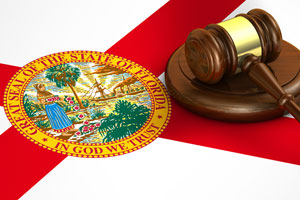While awaiting trial on more than a dozen felonies involving sexual abuse of a child, Jason Eugene Daniels got a tip from his cellmate about an expert witness who could assist his defense. The expert, Chester Kwitowski, had testified as a computer forensics expert in other Polk County, Florida cases.
Daniels passed the expert’s name to his defense attorney, who asked Kwitowski for his resume. Impressed with Kwitowksi’s credentials, the attorney decided to engage his services. That turned out to be an unfortunate decision, particularly for Kwitowski. After he testified, Kwitowski was arrested for perjury. Even more unfortunate is the opportunity Kwitowski gave the Polk County Sheriff to criticize defense experts.
Kwitowski’s Arrest
The Tampa Bay Times reports that a sheriff’s detective who was serving as a prosecution expert in Daniels’ case became suspicious about “inconsistencies in Kwitowski’s qualifications.” The Sheriff’s Office began an investigation. Kwitowski was arrested after detectives discovered that some of his credentials were falsified.
Kwitowski was charged with committing perjury when he testified about his education, his professional certifications, and his military service. Kwitowski falsely claimed to have a master’s degree in computer science and engineering and to have multiple computer forensics certifications. He also gave false testimony about having a “Top Secret clearance” and working on “sensitive government projects.”
An investigation by the Tampa Bay Times also cast doubt on Kwitowski’s claim that he had “information technology and systems support contracts” with two government offices. Those offices had no record of contracting with Kwitowski.
Kwitowski said he testified as a computer forensics expert at least fifty times in state and federal courts. The Sheriff’s Office is investigating that claim to determine whether it was exaggerated.
Sheriff Criticizes Defense Experts
An interview that the Polk County Sheriff gave to a news station suggests that the Sheriff’s Office had a grudge against Kwitowski. The Sheriff said, “We call him Chester who defends the molesters.”
The implication is that expert witnesses should not testify for the defense in child pornography or child molestation cases. The Sheriff’s uncharitable attitude is inconsistent with the presumption of innocence and the constitutional right to present a defense.
Experts should not be impugned simply because they testify for one side or the other in a criminal prosecution. Experts are advocates for the truth, not for a particular party.
The Importance of Defense Experts
Computer forensics experts play a crucial role in assuring that juries understand the evidence against individuals who are accused of crime. Sloppy work by a prosecution expert, left unchallenged, can lead to a wrongful conviction.
Julie Amero is a case in point. While working as a substitute teacher, Amero used a classroom computer to check her email. The computer began to display pornographic images in a series of popups. As quickly as Amero closed one, another would take its place.
Students in the classroom saw the images. She reported it to school officials, who told her not to worry. Concerned parents, however, pressured the school to report Amero to law enforcement authorities. Amero was accused of surfing pornographic websites in the classroom. The accusations led to her arrest for causing a risk of injury to a minor.
The prosecution called a computer forensics expert who testified that the computer could not have displayed pornographic popups, as Amero claimed. The defense did not call an expert and Amero was convicted.
If Amero’s defense attorney had hired an expert, it is likely the case would have been dropped. After her conviction, forensic computer experts volunteered to help her. They explained that her version of events was consistent with a malicious spyware program. Their assistance shamed the prosecution into sending the computer’s hard drive to the state police forensics laboratory. An analysis found evidence that supported Amero and that contradicted the state’s expert witness.
Based on the new expert evidence, a judge overturned Amero’s conviction. The judge also found that the prosecution’s computer forensics expert had given false testimony. But for the willingness of experts to step in and remedy an injustice, Amero’s wrongful convictions would still be haunting her.
Lessons Learned
Jack Townley, the president of the Florida chapter of the Forensic Expert Witness Association, told the Tampa Bay Times that once someone has testified as an expert, lawyers tend to assume that the expert’s credentials have been verified. That isn’t always the case, as Kwitowski’s history demonstrates.
It never hurts to ask an expert to verify claims made on a resume. Producing a copy of a diploma or of certifications shouldn’t be burdensome for most experts, and a failure to do so should cause lawyers to raise an eyebrow and ask whether the expert might be hiding something.
Only a small percentage of expert witnesses fabricate their resumes, which might lull lawyers into a false sense of security. As Townley notes, the more time lawyers spend verifying credentials, the less time they have available to prepare for court. At the same time, an attorney who fails to check credentials runs the risk that a lawyer on the other side of the case will do so. It’s better to learn about an expert’s problematic resume before making a decision to put the expert on the witness stand than to watch the expert’s credibility be destroyed on cross-examination.




